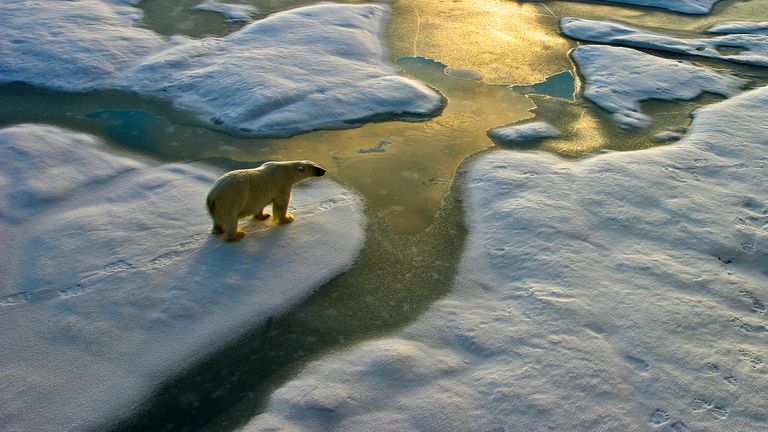Arctic sea ice loss is causing an increase in inbreeding among polar bears that are struggling to survive in these habitats, a new study has found.
Researchers looked at populations of the mammals in the Svalbard Archipelago and the impact of their habitats becoming smaller and more isolated as the disappearance of ice accelerates.
The team found that in a 20-year period (1995-2016) there were “major demographic changes” among the polar bears with their genetic diversity around 10% lower at the later date.
The study said: “The magnitude and rate of loss of genetic diversity and gene flow that we observed is alarming considering that polar bears have historically shown relatively little genetic differentiation even on a global scale, but now are facing increasingly strong climatic selective pressure.”
Open water barriers for increasingly long seasons mean that polar bears are unable to migrate between subpopulations in order to mate, which is what leads to inbreeding.
The study said the west coast of Spitsbergen has experienced the greatest loss of sea ice in the Barents Sea region and also showed the highest rate of change in genetic diversity.
“The results of simulations suggested that further loss of sea ice will lead to the continued erosion of local genetic diversity in polar bears of the Svalbard Archipelago and to increased isolation between local areas, especially if there is a concurrent decrease in the number of bears,” the study in the journal Proceedings of the Royal Society B said.
The team said increased isolation will lead to more inbreeding in future and cause something called “inbreeding depression” which is the reduced survival and fertility of the offspring of related individuals.
There are around 20,000-30,000 polar bears left in the world but their status is classed as vulnerable.
As global temperatures continue to rise, their habitats and ability to hunt prey will become even more restricted and they could come close to extinction.

